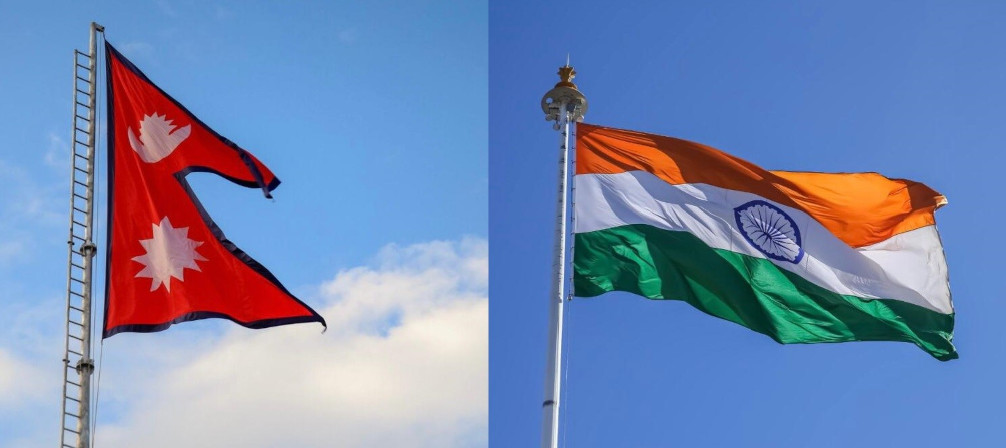03 January, 2024

Foreign Minister S. Jaishankar is set to embark on his second visit to Kathmandu, underlining India's commitment to its 'Neighborhood First' policy. The visit, scheduled for January 4-5, will include a joint commission meeting. During this diplomatic engagement, Minister Jaishankar aims to advance discussions on various crucial issues, notably focusing on development and connectivity.
The two riparian nations are set to finalise a long-term hydropower deal, with the signing expected to occur six months after Prime Minister Pushpa Kamal Dahal's visit to India. During the visit, both nations agreed in principle that India would import 10,000 megawatts of hydroelectricity from Nepal over the next decade. A noteworthy study by the Water and Energy Secretariat in Kathmandu has recognised Nepal's vast potential to harness over 72,000 megawatts of hydropower across 10 major river basins and their sub-basins. Despite this potential, Nepal faces limitations in fully exploiting its hydropower resources due to inadequate capabilities. The anticipated agreement may create opportunities for Nepal to export power to Bangladesh through India. Moreover, it is expected to open avenues for India to meet its energy needs and engage in investment opportunities, supporting Nepal in realising its full potential in utilising its natural resource endowments.
The Issues of Contention
Three critical issues demanding attention and in-depth dialogue at this stage include the Pancheshwar Multipurpose project, the future trajectory of the Eminent Persons Group (EPG), and the matter of overflight rights. After Prime Minister Pushpa Kamal Dahal's visit to New Delhi in late May 2023 to early June 2023, both parties intensified discussions to finalise the detailed project report (DPR) of the Pancheshwar Multipurpose project within three months. Subsequent meetings of the governing body (board of directors) were convened in July and October of the same year, but no conclusive agreements were reached. Disagreements persist, particularly regarding the perceived benefits of the project in areas such as irrigation and flood control for each side. It is crucial for both parties to engage in substantive discussions on the Pancheshwar project, as it sets the tone for the future course of action.
Secondly, there has been little tangible progress on the Eminent Persons Group (EPG), a structural grouping proposed during Prime Minister Narendra Modi’s inaugural visit to Nepal in August 2014 and subsequently formed in 2016. The agreement stipulated that both sides would study and propose measures to update the 1950 India-Nepal Friendship treaty, aiming to enhance bilateral ties. However, seven years after its formation, the EPG group of diplomats and experts, which finalised the report in July 2018, is yet to present the formal report to Mr. Modi.
Thirdly, India has yet to respond to PM Prachanda’s proposal to allow international flights over Indian airspace for accessing two of Nepal’s newly constructed airports in Bhairahawa and Pokhara, which is partly funded by Chinese aid. In June 2023, Foreign Secretary Vinay Kwatra mentioned that the matter would necessitate “extensive technical examination” due to potential interference with the space controlled by the Indian Airforce. As a result, the two airports, serving as gateways to crucial tourist destinations in Nepal, have been unable to generate revenues from international airlines and foreign tourists, raising concerns about a possible "debt trap."
India’s Strategic Calculus and the Way Forward
In the face of China's increasing influence operations in India's neighbourhood, it becomes crucial for India to sustain momentum and broaden the scope of its engagement with Kathmandu. It is noteworthy that Nepal's economic vulnerabilities have provided China with opportunities to enhance its influence through various mechanisms in a region pivotal to India's strategic considerations.
To achieve a more effective outcome, India should adopt a two-pronged policy: (a) increase investments in development and connectivity projects, providing support to Kathmandu in developing security capabilities; (b) enhance and nurture its existing soft power and cultural connections. This approach aims to not only address immediate concerns but also foster long-term stability and cooperation between the two nations.
Furthermore, to implement a proactive policy, India should enhance its communication channels. Establishing a rapid and regular dialogue channel, along with a feedback desk, would facilitate expeditious resolution of impending issues and encourage collaborative problem-solving between both nations.
Already a significant partner for Nepal and vice versa, India needs an effective policy approach to ensure that its neighbour's concerns are heard and acknowledged. This approach is crucial not only for Nepal but also for other neighbouring countries. Strengthening communication with diverse stakeholders within and peripheral to the power structure will equip India to formulate a long-term vision, thereby garnering more trust and support on the ground.
Foreign Minister Jaishankar's visit to Kathmandu offers a valuable opportunity for both sides to address mutual concerns and priorities, paving the way for development-oriented dialogue. His decision to choose Nepal for his first foreign visit in 2024 underscores India's strategic commitment to prioritise its neighbourhood, sending a clear message of regional importance.
Other Research Articles
India’s External Affairs Minister’s 2024 Visit to Nepal: An Assessment
January 25, 2024
Biodiversity of Gulf of Mannar, SL shipping under threat
February 14, 2023
Sri-Lankan President to leave for Japan to mend fences
September 01, 2022
Fifty years of Nepal-Bangladesh relations: A friendship with much potential
May 11, 2022